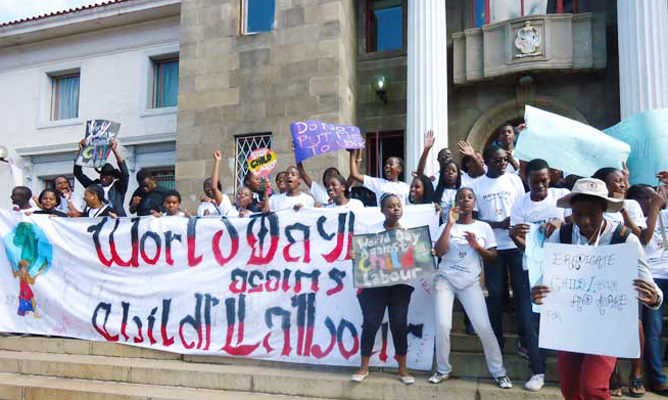
TODAY is World Health Day and it makes for sad reading that children who work on Zimbabwe’s tobacco farms are facing serious risks to their health as well as labour abuses. This ancient barbaric practice of employing children should be addressed by the government as one of its priority issues.
NewsDay Comment
Basic children’s rights denounce child labour, which not only stifles the initiative of the young children, but exposes them to unsafe conditions and abuse.
A recently published report by the Human Rights Watch (HRW) makes startling revelations about how children work in hazardous conditions, performing tasks that threaten their health and safety or interfere with their education.
Child workers are exposed to nicotine and toxic pesticides, and many suffer symptoms consistent with nicotine poisoning from handling tobacco leaves.
Adults, working on tobacco farms in Zimbabwe, also face serious health risks and labour abuses.
Following this, stakeholders have made a clarion call on the government to take urgent steps to protect tobacco workers especially children.
One of the most serious health risks in tobacco farming is acute nicotine poisoning, or Green Tobacco Sickness, caused by absorbing nicotine through the skin from tobacco plants.
- Chamisa under fire over US$120K donation
- Mavhunga puts DeMbare into Chibuku quarterfinals
- Pension funds bet on Cabora Bassa oilfields
- Councils defy govt fire tender directive
Keep Reading
Child labour and other human rights abuses on tobacco farms in Zimbabwe tarnish the tobacco industry’s contributions to the country’s economic growth and improved livelihoods. There is also the risk that companies sourcing tobacco from Zimbabwe will boycott crops produced by child workers.
Zimbabwean law sets 16 as the minimum age for employment and prohibits children under 18 from performing hazardous work, but does not specifically ban children from handling tobacco.
There are no agriculture-specific health and safety protections in Zimbabwean law or regulations.
There are serious gaps in legislation on child labour.
While multinational companies have set up policies prohibiting their suppliers from using child labour and engaging in other human rights abuses, there is not much on carrying out and monitoring these policies in Zimbabwe.
The Labour ministry even told the HRW that it had not documented any cases of child labour in the tobacco industry.
Such lies in the face of overwhelming evidence of child labour should be frowned upon with the scorn they deserve.
With only 120 labour inspectors for the whole country, it is no surprise the information gathered by the ministry is unreliable. The government has to do more to stop child labour, particularly on tobacco farms, where the children face health risks.











